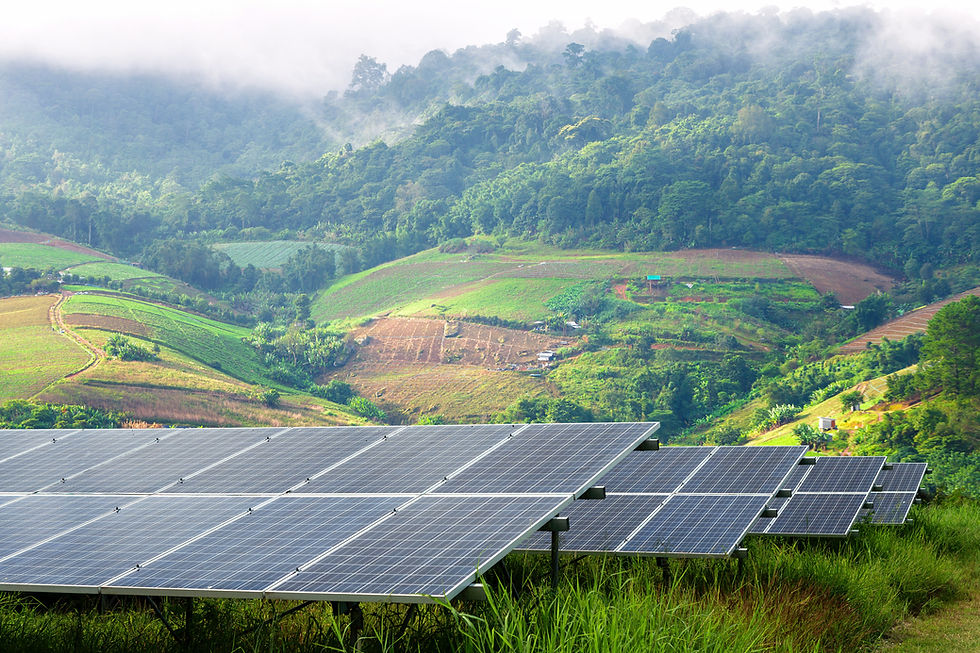The Impact of Tourism on Real Estate Management Practices in Dubai
- UpperKey

- Sep 5, 2023
- 4 min read
Updated: Aug 5, 2024
Dubai, renowned for its dazzling skyscrapers, opulent hotels, and luxurious shopping malls, has become one of the world's most sought-after tourism destinations in just a few decades. This swift evolution has not only reshaped its economy but also drastically impacted the property management practices in the emirate. In this article, we delve into the significant influences of Dubai's booming tourism industry on its property management landscape.
Introduction to Dubai's Tourism Boom
Dubai's tourism industry has seen exponential growth, with millions of tourists flocking the city annually. With initiatives such as the Dubai Shopping Festival, Expo 2020, and a plethora of attractions ranging from the Burj Khalifa to the Dubai Mall, the emirate has solidified its status as a global tourism hub.

Rising Demand for Short-Term Rentals
Shift from Traditional Leasing Before the tourism boom, Dubai's real estate landscape was predominantly dominated by long-term leasing. However, with an influx of tourists, there's been a significant rise in the demand for short-term rental accommodations like holiday homes, serviced apartments, and luxury villas.
Regulatory Frameworks Acknowledging this trend, the Dubai government introduced regulatory frameworks to govern the operation and management of holiday homes. This ensured that property managers and owners maintained international standards, benefiting both the tourists and the city's reputation.
Economic Impact of Short-Term Rentals The economic implications of this shift towards short-term rentals have been considerable. With higher turnover rates compared to long-term leases, property owners have found the potential for increased revenue, especially during peak tourist seasons. Furthermore, the local economy benefits from tourists who tend to spend more on local businesses, attractions, and dining experiences during their shorter stays. This increased consumer spending boosts local businesses and further propels Dubai's position as a lucrative market for international investors.
The Advent of Digital Platforms The digital age has greatly facilitated the surge in short-term rentals. Platforms like Airbnb, Booking.com, and local sites have bridged the gap between tourists and property managers. These platforms not only provide ease of booking for tourists but also offer property managers tools to maintain quality standards, manage pricing dynamically based on demand, and garner reviews which further influence the reputation of properties. With real-time feedback loops, property managers are more agile in addressing concerns and enhancing the overall guest experience.

Luxury and Unique Offerings
Competition Drives Innovation To cater to the discerning tastes of international tourists, property managers have been compelled to up their game. This has led to an emphasis on luxury accommodations, unparalleled amenities, and unique experiences. The presence of ultra-luxury hotels has driven residential properties to offer similar, if not better, services.
Smart Technologies Many properties are integrating smart technologies, offering tourists an enhanced user experience. This includes automated check-ins, smart home controls, and advanced security systems.

Emphasis on Sustainability
Dubai's vision aligns with global trends of sustainability. Tourists today are more eco-conscious and prefer accommodations that are environmentally responsible.
Green Building Practices Many new properties are being constructed with sustainability in mind, following Dubai's green building regulations. Property managers are also retrofitting older buildings to make them more energy-efficient.
Waste Management Property managers are now more vigilant about waste management, employing recycling practices and reducing water wastage to cater to the eco-conscious traveler.
Water Conservation and Desert Landscaping In a region where water is a precious commodity, Dubai has taken noteworthy strides in promoting water conservation methods. Property managers are increasingly adopting water-efficient fixtures, employing greywater recycling systems, and landscaping with native or drought-resistant plants that require minimal irrigation. This approach not only reduces water usage but also offers guests a glimpse of Dubai's natural desert beauty.
Renewable Energy Initiatives Dubai's ambition to become a leader in sustainable practices is evident in its push towards renewable energy sources. Many property management companies are integrating solar panels and other renewable energy systems into their properties. The government's support in this area, with incentives and regulatory encouragement, has expedited the adoption rate. As a result, tourists can often find accommodations that run, at least in part, on clean energy, further enhancing the emirate's appeal to the environmentally-conscious traveler.

Cultural Integration
Authentic Experiences Tourists visiting Dubai not only seek luxury but also desire authentic Emirati experiences. Property managers, recognizing this trend, are increasingly incorporating traditional design elements into interiors, offering local culinary experiences and providing cultural immersion opportunities.
Balancing Modernity and Tradition While Dubai is a symbol of modernity, its roots are deeply traditional. Property managers ensure that while tourists get a taste of the latest amenities, they also experience the rich traditions of the Emirates.
Challenges and Considerations
Over-supply Concerns The rapid growth of properties catering to tourists could potentially lead to an oversupply, affecting rental yields and property valuations. Property managers have to be strategic in differentiating their offerings to stand out.
Evolving Tourist Expectations The dynamic nature of the tourism industry means that property managers have to continually evolve to meet changing tourist expectations, be it in terms of technology, services, or experiences.
Conclusion
Dubai's meteoric rise as a global tourism hotspot has significantly influenced its property management practices. From embracing short-term rentals and integrating luxury offerings to emphasizing sustainability and cultural experiences, the impact is profound and continues to shape the emirate's property landscape. As Dubai progresses and tourism trends evolve, property management in the city will undoubtedly continue its trajectory of innovation and excellence. UpperKey, with its expertise in property management and a technology-driven approach, can provide seamless solutions for landlords, ensuring optimized rental yields while maintaining high-quality guest experiences.




